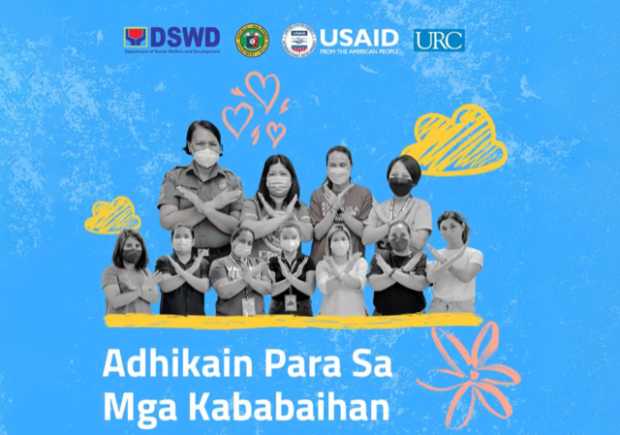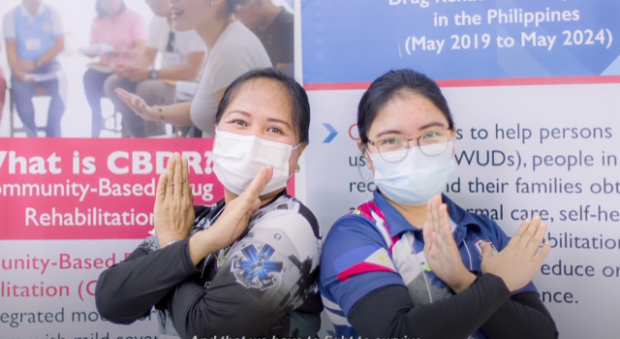Advocating support for women in community-based drug rehabilitation
“I already accepted the fact that I was sick, that it was an illness affecting the brain. It’s very difficult to struggle with myself. But at the same time, part of me says, “You have the tools, Kay. You’re already in recovery, so you have to fight it.”
Kay is just one of the women who use drugs (WWUD) in the middle of her recovery journey. Thankfully, she was aided by her local government unit’s (LGU) rehabilitation program, and has transformed her life. Kay was once a woman who uses drugs (WWUD) that the USAID, the Department of Social Welfare and Development (DSWD) and the Department of Health (DOH) sought to reach out to.
It for this reason USAID, DSWD, and the DOH celebrated women’s month with a learning session that tackled the challenges and concerns of WWUDs taking their first streps toward recovery.

USAID, DSWD, and the DOH celebrated women’s month with a learning session that tackled the challenges and concerns of WWUDs taking their first streps toward recovery.
Ninety-six participants attended the event from various government organizations, local government units, and civil society organizations. The event included insights from Dr. Socorro Santos, Chief of the Planning Division of the DOH Health Policy Development and Planning Bureau; Joselina Niwane, DSWD’s Undersecretary for Policy; Luzviminda Ilagan, DSWD’s Undersecretary Legislative and Liaison Affairs; and Dr. Michelle Lang-Alli, Director of USAID Philippines’ Office of Health, who gave the welcome remarks during this online event.
The online learning session integrated the initial results of research from USAID’s RenewHealth detailing the specific issues of WWUD, including their struggles with abusive relationships, finances, and childcare while undergoing treatment. This further emphasizes WWUD’s need for familial acceptance and support, as well as more job and livelihood opportunities.
Organizations like Kababaihan para sa Pagbabago at Pagbangon (KPP), StreetLawPH, Pasig City’s Anti-Drug Abuse Office and Naga City’s Bantay Familia are a big help in these circumstances, providing the necessary support while these women find their footing and sustain their recovery.
KPP for example, participates in the LGU’s Community Pantry, opened a Community Store, and manufactures Dishwashing Liquid and assists in Paralegal Training programs. They are also involved in Narcotics Anonymous Facilitation to offer emotional support. These are just some ways LGUs, civil organizations, and more can provide tangible assistance to WWUDs.

More people are finding ways to step up and help women find a fresh start
All in all, it was a fitting women’s month celebration watching communities come together to #BreakTheBias against WWUD. Fortunately, more people are finding ways to step up and help women find a fresh start. Concerned citizens can contribute and help #BreakTheBias too. Start by first listening to their stories and learn more about them in their own words: https://bit.ly/BawatSimulaKwentongKababaihan
USAID RenewHealth, implemented by URC, is one with WWUDs and their families. They are committed to providing the proper tools to reduce and prevent drug dependence in the Philippines, so that just like Kay, they can continue to fight for their new lease on life. Join their mission and watch this video on on Adhikain para sa Kababaihan. https://bit.ly/AdhikainParaSaKababaihan
ADVT.